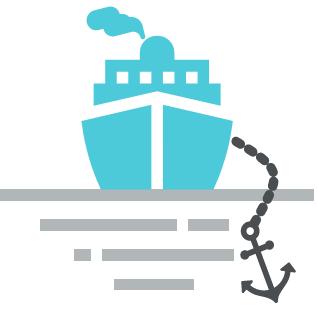Panama Strengthens Sanctions Enforcement: New Measures for Ship Registry Control
The Panama Maritime Authority (PMA) has implemented decisive new legal measures to protect the integrity of the world’s largest ship registry, targeting vessels listed under international sanctions. This move is part of Panama’s broader strategy to respond to increasing global pressure and sanctions aimed at curbing illicit maritime activities. On October 18, 2024, the PMA formalized these changes with the issuance of Executive Decree No. 512, which establishes a legal framework for the immediate cancellation of registration and navigation licenses for vessels that appear on international sanctions lists.
The decree applies to vessels flagged by Panama that have been placed on sanctions lists from key international bodies, including the US Department of the Treasury’s Office of Foreign Assets Control (OFAC), the United Nations Security Council, the European Union, and the United Kingdom. Under the new rules, if a vessel is found to be on any of these lists, the PMA will automatically invalidate all of its navigation documents and licenses. Additionally, any organizations under Panama’s jurisdiction are prohibited from providing classification or certification services to vessels under investigation for potential deregistration.

Panama’s ship registry, which encompasses more than 8,000 vessels with a combined gross tonnage of 250 million, is a global leader in maritime commerce. However, international ship registries, including Panama’s, have faced growing scrutiny as sanctions have become a more powerful tool to combat destabilizing actions by countries such as Russia, Iran, and Venezuela. By introducing these strict regulatory controls, Panama is positioning itself as a responsible global player that aligns with international standards, helping to prevent the use of its flag by vessels involved in illegal or sanctioned activities.
The decree also empowers Panama’s Directorate General of Merchant Marine (DGMM) to propose the deregistration of vessels to the PMA Administrator for final approval. This new regulatory framework is a direct response to the increasing number of sanctions being imposed by Western nations to counter illegal activities, including oil smuggling. For example, just last month, OFAC imposed sanctions on over a dozen entities and vessels involved in transporting Iranian crude oil to Syria and East Asia. Among these vessels were seven that were flagged by Panama, underscoring the need for Panama to tighten its regulatory grip.
In response to these sanctions, the PMA emphasized that it will take swift action to cancel the registration of any vessel found to be engaging in illegal activities or attempting to change its flag in order to evade sanctions. This stance is part of a broader effort to ensure that Panama’s regulatory framework aligns with international efforts to combat terrorism financing, arms smuggling, and other destabilizing activities linked to sanctioned vessels.
Executive Decree 512 further reinforces Panama’s commitment to preventing vessels under its flag from being used for illegal trade or to evade sanctions. Notably, while the registration of a sanctioned vessel can be revoked, any active mortgages associated with that vessel will remain valid, allowing creditors to enforce their legal rights. Financial institutions will be notified about the vessel’s status to ensure transparency and compliance with legal obligations.
Panama’s new legal measures are expected to have a significant impact on vessel owners and operators, particularly those involved in risky or illicit activities. By strengthening its regulatory controls, Panama aims to deter bad actors from using its flag as a shield for conduct that violates international laws and sanctions. As global attention on the shipping industry’s role in facilitating illegal transactions continues to grow, Panama’s actions may prompt other flag states to reassess their own regulatory frameworks and tighten controls on vessels engaged in illicit activities.

